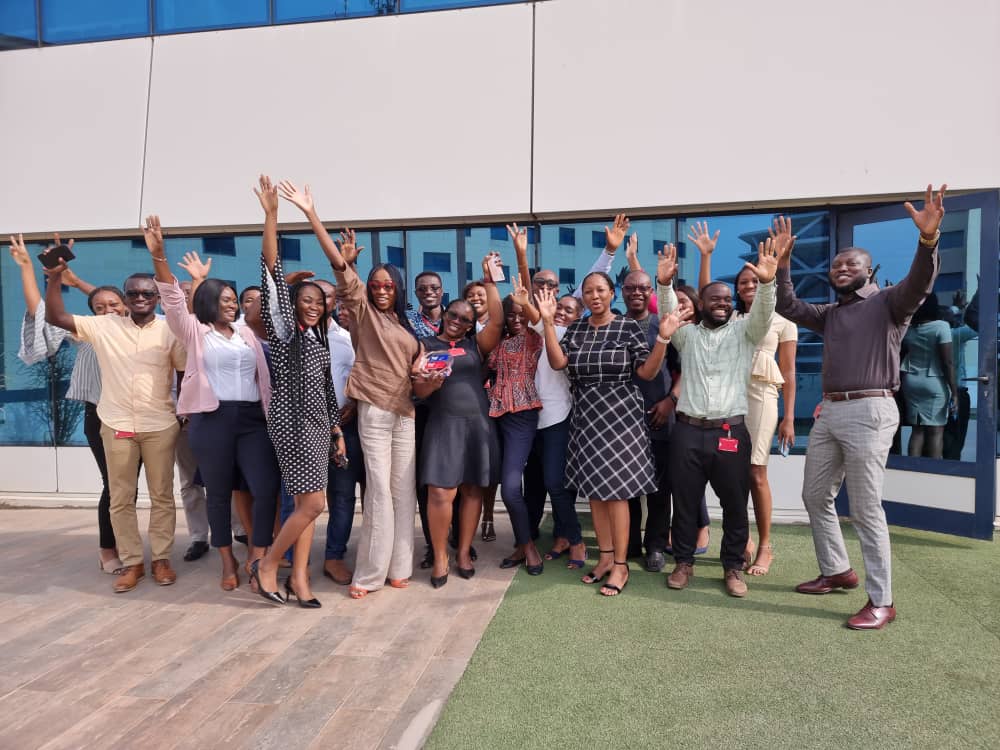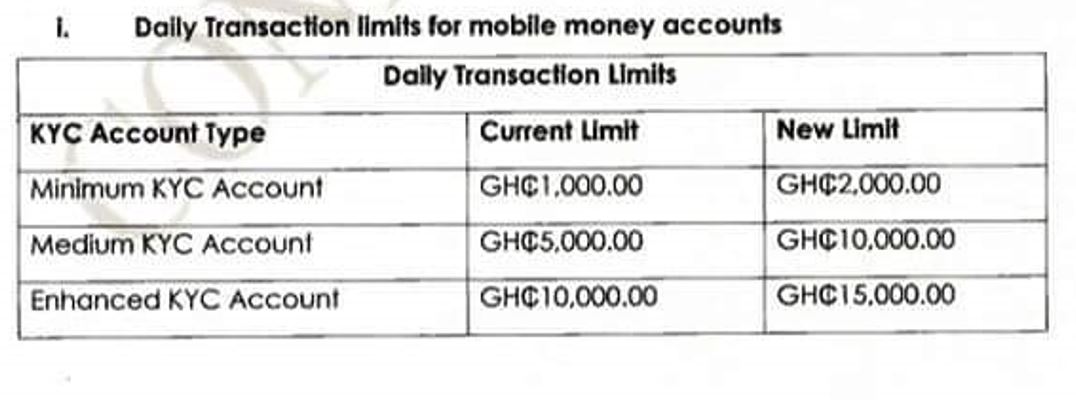Vodafone Ghana says the public should disregard reports that it is recruiting new persons for various positions in the company.
Continue readingAirtelTigo to undergo rebranding under new management
Impeccable sources have revealed that last week the Minister of Communications and Digitalization, Ursula Owusu-Ekuful personally informed workers of the company that “the deal is done” and latest by February they will know the name of the new buyer.
Meanwhile, the various agencies and partners of AirtelTigo have also been informed about the coming of the new buyer and the forthcoming rebranding of the company.
It is not clear if the brand colors will be changed or maintained, but the source says the name AirtelTigo will be completely done away with.
Meanwhile, workers are very much upbeat about the coming of the new buyer because, as the source put it, “workers have been sitting on the tenterhooks since government acquired AirtelTigo, not knowing what their fate was. But now it is clear that things will be a bit better.”
Government took over AirtelTigo in 2021 for only US$1, when the two telcos which merged to form the company, India’s Bharti Airtel (Airtel) and Sweden Millicom Cellular BV (Tigo) left the country.
Since the merger, the company has still not been doing so well on the market, as it is reportedly heavily indebted to tower companies, particularly ATC Ghana.
Last year, Globacom Ghana, another telco which had also not been doing so well on the market, migrated all of its over 800,000 customers to the AirtelTigo platform. So, now Glo customers have become AirtelTigo customers and the Glo network is now dormant, even though the company still holds its license, at least until July this year.
This also comes at a time when the National Communications Authority (NCA) only recently approved the sale of majority shares in Vodafone Ghana to Telecel Group, after a roller coaster process, in which the NCA initially claimed the deal did not meet regulatory requirements and Telecel did not have the technical and financial muscles to do the job.
Meanwhile, the runaway market leader, MTN Ghana, has been made a significant market power (SMP) with some seven measures being implemented in that regard to correct the imbalance in the market, which has been a concern to both existing and prospective investors in the space.
Industry experts hold that making MTN an SMP was one of the calculated moves to drive investor confidence in the market because several interested investors have for years been concerned about the size and continuous growth of MTN in Ghana as other telcos and ISPs (internet service providers) continued to perform abysmally.
It would have appeared that the SMP strategy has not done much to curtail MTN, so now the Ghana Revenue Authority (GRA), has slapped a GHS8.2 billion tax liability on MTN based on an alleged audit done by Safari Tech Ghana Limited, which claimed that MTN hid 30% revenue from government between 2014 and 2018.
MTN has disputed the claim, but it would appear that the efforts at “cutting MTN to size”, as alleged by some industry watchers, has triggered investor confidence to the point that Telecel is set to come into the market and there is a new buyer for AirtelTigo, which would be made public possibly in February.
Source: Techgh24(News Ghana)
Modernisation, harmonisation of regulatory frameworks critical for universal broadband coverage by 2030 – Ralph Mupita
Ralph Mupita, The President and CEO of MTN Group, Africa’s telecommunications giant, has called for modernisation and harmonisation of regulatory frameworks to ensure Africa can deliver universal broadband coverage by 2030. He made these remarks at the maiden edition of the Africa Prosperity Dialogue held at Peduase in the Eastern Region of Ghana.
Continue reading16.99m internet users recorded in Ghana in January 2022 – Report
Ghana’s internet penetration rate stood at 53.0% of the total population at the start of 2022, as 16.99 million internet users were recorded in January 2022.
According to the Digital 2023 Global Overview Report, internet users in Ghana increased by 350,000 (+2.1 percent) between 2021 and 2022.
The report further revealed that 15.07 million people in Ghana did not use the internet at the start of 2022, meaning that 47.0% of the population remained offline at the beginning of the year.
Ghana’s total population stood at 32.06 million in January 2022.
The report, however, said “issues relating to COVID-19 continue to impact research into internet adoption, so actual internet user figures may be higher than the published numbers suggest”.
Social media users stood at 8.80m in January 2022
Meanwhile, the report stated that there were 8.80 million social media users in Ghana in January 2022.
The number of social media users in Ghana at the start of 2022 was equivalent to 27.4% of the total population.
But the report said it’s important to note that social media users may not represent unique individuals.
Source: MyJoyOnline
Top Employers Institute recognises Vodafone Ghana as Top Employer for 2023
The Institute recognized Vodafone Ghana as a Top Employer in Ghana five years ago and in the four subsequent years thereafter as Top Employer in Ghana and Africa.
Each year, the Top Employers Institute identifies organizations that put their people first through exceptional HR policies.
The Institute’s certification programme is based on the results of the HR Best Practices Survey, which covers six HR domains and 20 topics, including People Strategy, Work Environment, Talent Acquisition, Learning, Diversity & Inclusion, and Well-being.
Top Employers Institute CEO David Plink said, “Uncertain economic times bring out the best in people and organizations. And we have witnessed this in our Top Employers Certification Programme this year: exceptional performance from the certified Top Employers 2023.
“These employers have always demonstrated that they care for the development and well-being oftheir people. By doing so, they collectively enhance the world of work. We are proud to announce and celebrate this year’s group of leading people-oriented employers: the Top Employers 2023.”
“We are honored to be recognized as a Top Employer for Ghana and Africa, 2023 by Top Employers Institute,” said Hannah Ashiokai Akrong, Vodafone Ghana’s Director of Human Resources.
“It is a testament to our commitment to creating a positive and inclusive working environment for our employees. We believe that investing in our people is not only the right thing to do, but it also drives the success of our organization.”
This remarkable achievement re-affirms Vodafone as a leader in exceptional HR policies and outstanding working conditions and highlights the organization’s dedication to a better world of work through excellent people practices, even during uncertain economic times.
Top Employers Institute is the global authority on recognizing excellence in People Practices. Through the Top Employers Institute Certification Programme, participating companies can be validated, certified, and recognized as an employer of choice.
Established over 30 years ago, Top Employers Institute has certified 2,053 organisations in 121 countries/regions.
These certified Top Employers positively impact the lives of over 9.5 million employees globally.
Source: MyJoyOnline
NCA gives conditional approval for transfer of 70% of Vodafone Ghana shares to Telecel group
The National Communications Authority (NCA) says it has granted approval for the transfer of the 70% majority shares in Vodafone Ghana to Telecel group.
Continue readingMobile Money transaction and wallet limits increased by the Bank of Ghana
The Bank of Ghana as part of efforts to facilitate more efficient payments and encourage a seamless transition to a cash-lite society, has reviewed upwardly, the limits set on daily transactions and the maximum account balances on mobile money wallets.
Continue readingCharging of revised E-Levy rate of 1% starts on January 11, 2023
The Ghana Chamber of Telecommunications has announced that the implementation of the revised Electronic Transfer levy (E-Levy) rate of 1% will start on Wednesday, January 11, 2023.
Continue readingELECTRONIC TRANSFER LEVY – CHARGING OF REVISED E-LEVY RATE OF 1% ON ELECTRONIC TRANSFERS
Accra, January 10, 2023 – The Ghana Chamber of Telecommunications presents its warm compliments to all customers of its members including the Electronic Money Issuers (Operators of Mobile Money Services) in Ghana, as a new year commences.
Continue readingImplementation of 1% E-Levy begins from January 11, 2022 – Telecoms Chamber
Following the directive from the Commissioner General of the Ghana Revenue Authority (GRA), the implementation of the revised Electronic Transfer Levy (E-Levy) rate of 1% by mobile service providers will begin from tomorrow January 11, 2023.
Continue reading


